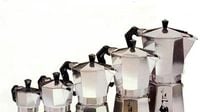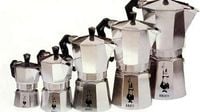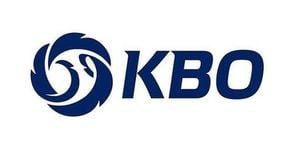On April 16, 2025, Bialetti, the iconic producer of the Moka coffee maker, was announced to be acquired by Chinese interests, marking a significant shift in ownership for the renowned Italian brand. The Luxembourg-based Nuo Capital, owned by the prominent Chinese magnate Stephen Cheng, has finalized a deal to purchase a substantial 78.567% of Bialetti's shares, signaling a new chapter in the company's storied history.
The acquisition has resulted in a remarkable surge of Bialetti's stock, which rose by 61% to 0.45 euros following the announcement. This increase reflects investor optimism about the future direction of the company under new ownership. Bialetti, which has been a staple of Italian culture and industry since its inception, is now poised for significant changes.
Founded in 1919 by Alfonso Bialetti in Crusinallo, Italy, the company began as a workshop producing aluminum semi-finished products. Its flagship product, the Moka Express, debuted in 1933 and quickly became a symbol of Italian coffee culture. Bialetti's journey took a major turn in 2007 when it went public on the Milan Stock Exchange, achieving a peak share price of 2.298 euros. However, the company faced challenges in subsequent years, including a dramatic decline in stock value, which fell to approximately 0.20 euros per share by 2020, representing a staggering 92% loss from its peak.
The recent acquisition by Nuo Capital is part of a broader strategy to restructure Bialetti's finances, which have been under pressure due to increasing competition and operational difficulties. Francesco Ranzoni, who has been at the helm of Bialetti for over 30 years, expressed optimism about the brand's potential, stating, "I acquired this wonderful brand over 30 years ago. Bialetti today is an international reality with great potential."
The deal involves two key agreements: Nuo Capital will purchase 59.002% of Bialetti from Bialetti Investimenti and Bialetti Holding for 47.3 million euros, and an additional 19.565% from Sculptor Ristretto Investment for 5.7 million euros. The closing of this transaction is expected to occur by the end of June 2025. Following the acquisition, Nuo Capital plans to launch a public tender offer (OPA) for the remaining shares, with a proposed price of at least 0.467 euros per share, aiming to delist Bialetti from the stock exchange.
The financial restructuring of Bialetti is also set to include significant financing measures. A junior financing of up to 30 million euros will be provided by illimity Bank and Amco Asset Management Company, while a senior financing of 45 million euros will come from Banco BPM, along with Bper and Banca Ifis. Additionally, Nuo Octagon, a subsidiary of Nuo Capital, is expected to contribute at least 49.5 million euros in equity, which will help significantly reduce Bialetti's existing debt.
This acquisition not only represents a pivotal moment for Bialetti but also reflects broader trends in the Italian industrial landscape, where iconic brands are increasingly falling into foreign hands. For many, this shift raises concerns about the preservation of Italian heritage and craftsmanship. However, for Nuo Capital, the acquisition is seen as an opportunity to revitalize a historic brand that embodies Italian culture and tradition.
As Bialetti transitions to its new ownership structure, the company aims to leverage its rich history while pursuing growth in a competitive market. Tommaso Paoli, CEO of Nuo, emphasized the commitment to expanding Bialetti’s reach and enhancing its product offerings. He noted that the company is not just a brand but a part of Italy's cultural fabric, and it will not be positioned to compete in low-cost production markets.
For the over 1,000 employees of Bialetti, this acquisition signals both uncertainty and potential opportunity. The new ownership promises to bring fresh investment and strategic direction, but it also poses questions about future employment and operational changes. As the closing date approaches, stakeholders will be watching closely to see how this historic brand adapts to its new reality.
In the context of Italy's industrial decline, the sale of Bialetti to Chinese interests might seem like a minor point on a larger downward trend. Yet, for many Italians, the emotional impact of losing a beloved brand to foreign ownership is palpable. The nostalgia associated with Bialetti's products, which have graced kitchens for generations, adds a layer of complexity to this business transaction.
As Bialetti embarks on this new journey, it aims to honor its legacy while navigating the challenges of modern business. The coming months will reveal how effectively Nuo Capital can harness Bialetti's storied past to build a successful future. With a focus on strategic growth and innovation, the hope is that Bialetti will not only survive but thrive in an ever-evolving market.








